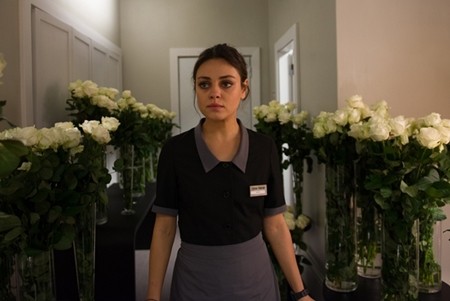
Third Person (2013) / Drama-Romance
MPAA Rated: R for language and some sexuality/nudity
Running Time: 137 min.Cast: Liam Neeson, Adrien Brody, Olivia Wilde, Moran Atias, Mila Kunis, Kim Basinger, James Franco, Maria Bello, Loan Chabanol, Vinizio Marchioni, Oliver Crouch
Director: Paul Haggis
Screenplay: Paul Haggis
Review published July 13, 2014
 Third
Person is one of those nifty and highly ambitious ideas for a
movie that, in retrospect, probably should have remained an idea and
never made it all the way to the silver screen. Though it
proceeds as if there is some sort of mystery surrounding the
interconnected lives of various characters we follow as part of this
movie, the title more or less gives it away (the trailer pretty much
did it for me). It's one of those films, much like Paul Haggis's
own Best Picture winner, Crash,
that has a central theme that all of the stories spin out from, but in
this case, there isn't the weight of an overall big theme like racism
to anchor it so much as one that is very singular and personal.
Third
Person is one of those nifty and highly ambitious ideas for a
movie that, in retrospect, probably should have remained an idea and
never made it all the way to the silver screen. Though it
proceeds as if there is some sort of mystery surrounding the
interconnected lives of various characters we follow as part of this
movie, the title more or less gives it away (the trailer pretty much
did it for me). It's one of those films, much like Paul Haggis's
own Best Picture winner, Crash,
that has a central theme that all of the stories spin out from, but in
this case, there isn't the weight of an overall big theme like racism
to anchor it so much as one that is very singular and personal.